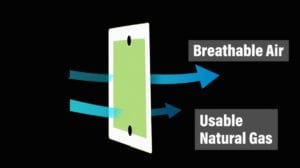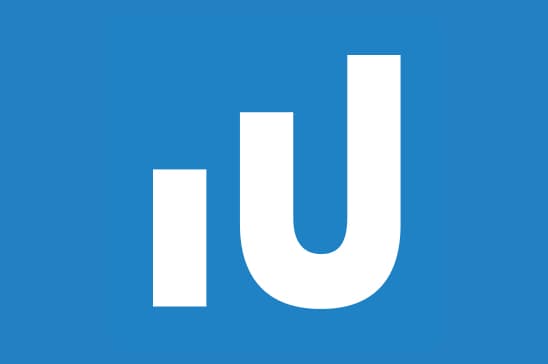7 Wealth Creation Tips to Grow Your Money Now
Wealth creation is the process of increasing assets and decreasing debts over time. If you are looking to build wealth but don’t know where to start, we here at Investment U have assembled some wealth creation tips that should help you build your money.
I prefer to call these wealth creation “tips” and not “hacks.” There is no easy path to wealth creation. It takes a lot of work and a lot of your most precious asset – and no, I’m not talking about money. I’m talking about time.
Short of hitting it big in the lottery – and you likely won’t – you can’t create wealth overnight. But if you take the time to follow these wealth creation tips and build other good money habits, you should be able to build a nice pool of wealth for your enjoyment.

7 Wealth Creation Tips
Tip No. 1: Start Building Wealth Today
Time is your most precious resource. Once you spend it, you can never get it back. That’s true in life, and it’s also true in money. So wealth creation tip No. 1 is to not waste any time and start building wealth today.
Did you know that people spend about 218 minutes procrastinating every day? That works out to 55 days of lost time per year. That’s a lot of time wasted, especially when it comes to your money and your wealth.
So stop procrastinating and get to work. In general, you need to have a wealth-building mindset. That means you’re investing in your future rather than splurging today. That involves sacrifice, and sacrifice can be painful. And maybe it isn’t worth it to you.
Perhaps you’d rather continue living paycheck to paycheck like 78% of other Americans or having just a small pool of savings for emergencies. And that’s okay!
If being wealthy were easy, everyone would do it. But if wealth creation is something you truly want for yourself and your family, then there is literally no time like the present to start.
One of the major reasons for this is because of the magical power of compounding interest. In general, the sooner you start, the greater the long-term effects of your money decisions will be.
Tip No. 2: Build a Great Career
Whether you work as a mechanic, a nanny, a doctor, a salesperson or an entrepreneur, you need to build yourself a great career. That’s our second wealth creation tip.
That doesn’t necessarily mean pursuing the highest-paying career path. I’m pretty sure my parents wanted me to be an anesthesiologist, and that didn’t work out, but I have no regrets even from a wealth creation perspective.
What you want is a career that you are both good at and enjoy doing. Of course, not every day will be a picnic. But if you are good at your job and enjoy doing it, you will likely be able to stay with it for a very long time – and make good money at it.
There is a correlation established between job satisfaction and making more money. On the one hand, the more you make, the happier you tend to be. On the other hand, the more you like your job, the longer you will likely stay in it.
After all, your day job is (most likely) going to be your primary source of income, at least for a while. Therefore, you should strive to maximize your earnings in your chosen career path. If you do your job well and you genuinely like doing it, people will notice.
Success begets success. As you excel at your work, you will find yourself being promoted – that can mean significant pay raises. Or being offered better and higher-paying jobs by external companies. Make sure to pursue these avenues to boost your income quickly.
There’s also more to your job than merely your salary. In addition, look for:
- Cash bonuses
- Health insurance benefits
- 401(k) or retirement benefits
- Vacation packages
- Perks like free gym memberships and retail or restaurant discounts.
All of these factors contribute to your overall compensation and your ability to generate wealth. For example, by having a good health insurance plan, you will likely save lots of money on healthcare in the long run and keep yourself healthier.
Has Investment U expert Matthew Carr found the next stock of the decade? One billionaire lead investor behind Google and Amazon has called it, “the largest economic opportunity of the 21st century.” Find out what it is by watching the video here.
Tip No. 3 – Create a Realistic, Flexible Budget – and Stick to It
For wealth creation tip No. 3, let’s pretend for a moment you were taking a road journey across continental Europe and you wanted to take just side roads. No highways.
Would you do that without the use of a map (or, in this day and age, a GPS)? Of course not – otherwise you’d be driving blind.
Similarly, you should think of your budget as your map to wealth creation. You shouldn’t be trying to manage your financial life without your map. So creating and sticking to your budget will be absolutely key.
However, I’m not encouraging you to strive for perfection. Some months you may find yourself not sticking to your budget 100%, and that’s okay. Just keep going. In time and with practice, you will likely find that it is easier for you to stick to it successfully.
Check out my article on how to make a budget if you don’t know where to start. The article will guide you in getting started with how to think about and format your sheet.
Tip No. 4 – Have More Than One Income Stream
In investing, diversification is a key to minimizing risk and not losing too much money. Similarly, for this wealth creation tip, the more you diversify your income streams, the less anxious you will be about losing your primary job.
This is especially helpful during a crisis like the coronavirus pandemic. Or during other times when the economy may not be great. But in truth, having multiple income streams can always be beneficial.
Now, there are two types of income to be aware of: active income and passive income. Active income is when you are actively engaged in some kind of work to make money. Passive income is when you earn money without having to do much (or any) additional work.
Your primary job is an active income stream, and if you work a second job or a side hustle like driving an Uber or working for Delivery Dudes, that is also an active income stream.
On the other hand, investing in income-generating stocks or bonds is a form of passive income. Your money earns money without your having to work for the actual companies you invest in.
Another form of passive income involves renting out real estate properties that you own. At least, as long as you don’t have to spend too much time on maintenance or servicing your properties.
The more income you earn and the faster you generate it, the more time your money will have to compound and earn a return. So start thinking about how you can add to your current income streams today.
Tip No. 5 – Monitor Your Credit Score
Your credit score indicates to potential lenders how creditworthy you are. As a result, your credit score is a measure of how much it will cost you to borrow money. So wealth creation tip No. 5 is to monitor your credit score.
Now, when you’re trying to create wealth, I suggest borrowing as little money as possible. That means paying off all of your credit cards and unsecured personal loans.
It may even mean renting an apartment rather than buying a home – although there are pros to home buying as well for creating wealth.
But when you do borrow money, you want your interest rates to be as low as humanly possible. And if you have an excellent credit score, they will be.
Make sure you are checking your credit score at least a few times per year. Pay your bills on time, always. And do not accumulate too much debt or too many different lines of credit.
Tip No. 6 – Be an Investor, Not a Saver
For this wealth creation tip, I want to make a major distinction between being a saver and being an investor. Saving money is good. It is much better than spending or borrowing money when you are trying to build wealth.
But being an investor is much better than only being a saver. That’s because you are able to generate a much higher return on your money by investing rather than saving. And in the long run, these increases in your wealth can be extraordinary.
If you check the savings account rates of your local bank branches, they are likely pretty bad. I am talking 0.01% type bad. This is not a large return on your money. In fact, it’s basically nothing.
Even a high-yielding savings account that gets you 2% annually – while better than the 0.01% alternative – is still peanuts compared with the awesome power of the stock market.
If you want to create serious wealth, putting as much of your money as you can in the stock market will be your greatest generator of wealth in the long run.
Tip No. 7 – Never Stop Learning
Education is wonderful, and I am not just saying that because I happen to have three degrees. So staying educated on money is our seventh and final wealth creation tip for you.
Education is incredible because learning gives you power. It’s like the old adage about giving a person a fish or teaching them to fish.
The more you learn about investing, the more you can take a hands-on approach to your own money. And that’s the key.
Because nobody cares more about your money and creating wealth for your future than you do.
So how do you learn to take care of your money and invest it? I highly suggest looking to trusted resources and consuming as much of their media as possible. Read books, blog posts and articles, listen to podcasts and watch videos.
Plus, it never hurts to find mentors or experts who have been there and know what they are doing. And by “experts,” I don’t mean shady financial advisors who don’t have your best interests at heart.
I mean people without conflicts of interest who can give you their wisdom on what they’ve done and why it worked.
Concluding Thoughts on These Wealth Creation Tips
I hope you have found these wealth creation tips helpful. They have certainly helped me on my road to wealth creation, and I believe they will do the same for you if you apply them and stick to them.
If you’re interested in getting more advice on personal finance, financial freedom and wealth creation in your inbox each day, make sure to sign up for our free Investment U e-letter by entering your email in the subscription box below.
Also, if you would like additional wealth creation tips and concrete steps, check out the article linked written by my colleague Peter Bosworth on the 4 Steps to Wealth Creation here.
Read Next: How to Achieve Wealth
About Brian M. Reiser
Brian M. Reiser has a Bachelor of Science degree in Management with a concentration in finance from the School of Management at Binghamton University.
He also holds a B.A. in philosophy from Columbia University and an M.A. in philosophy from the University of South Florida.
His primary interests at Investment U include personal finance, debt, tech stocks and more.






